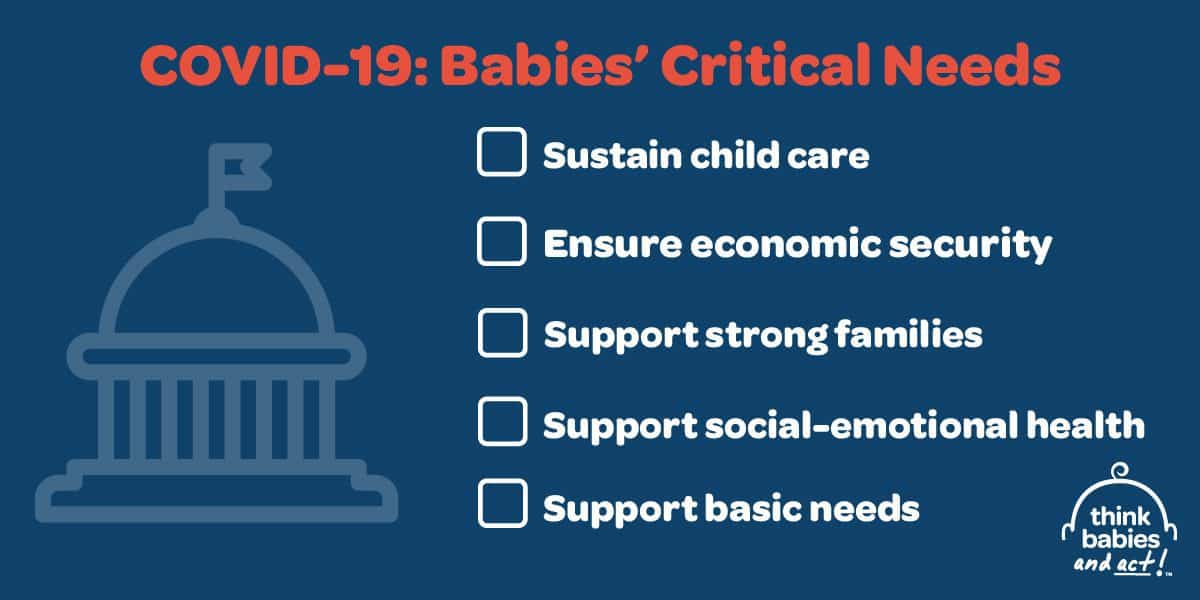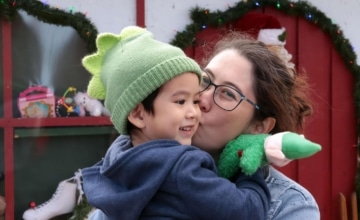In a letter to Congress, Chief Policy Officer Myra Jones-Taylor calls attention to the urgent needs of our young children who can experience profound and long-term developmental effects from catastrophic events such as the current pandemic.
Supporting families and securing the well-being of infants and toddlers—our future workers—must be the top priority as Congress looks to address the needs that still remain.
What families have experienced with the COVID-19 pandemic is akin to an earthquake: a sudden, unexpected episode, that disrupts everyone without prejudice. But what sometimes accompanies an earthquake is a tsunami that spreads across the ocean and disproportionately impacts those that cannot make it to higher ground. The policies and appropriations included in the Families First Coronavirus Response Act (FFCRA) and Coronavirus Aid, Relief, and Economic Security Act (CARES) are part of a necessary first response to the COVID-19 earthquake. What we need now are durable public policy solutions that will continue disaster response efforts but also raise up families in the face of the looming economic tsunami.
Some of the impacts, like going without clean diapers or formula or feeling the sting of child abuse, are immediate. Some are like the tsunami surging toward us bringing longer-term, but no less detrimental effects, including a loss of strong early learning opportunities that could prevent parents from returning to work and undermined social-emotional development that could affect babies’ future learning and success. All of these impacts are preventable. Congress needs to respond now to five critical needs of babies to protect them during the COVID-19 pandemic and ensure their continued strong development as some semblance of normal life returns.
Critical Area 1: Sustaining Child Care & Early Learning
Child care and other early learning supports are a key foundation on which the remainder of our economy rests.
Critical Area 2: Boosting Economic Security
Investing in families can help boost their economic security.
Critical Area 3: Supporting Strong Families
Prevention services and family-centered child welfare can boost protective factors.
Critical Area 4: Supporting Strong Social-Emotional Health
Disasters can threaten strong social-emotional health.
Critical Area 5: Meeting Basic Needs
Boosting babies’ health and development by meeting their basic needs.




